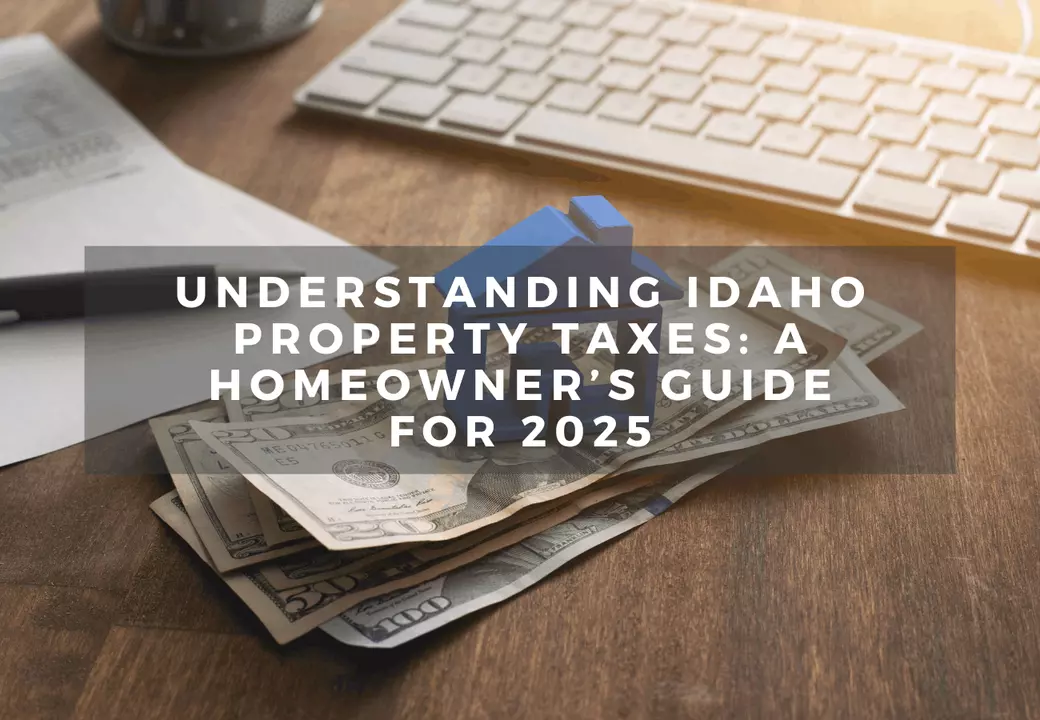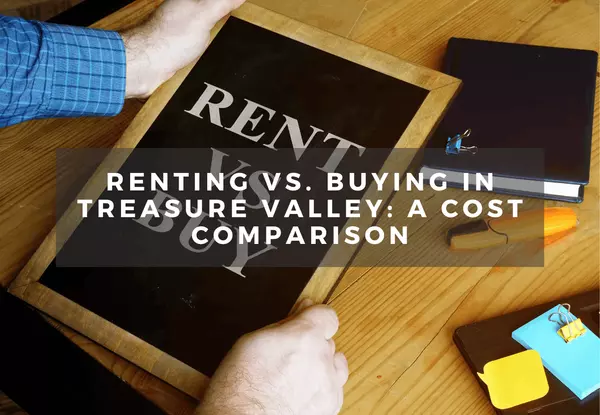Understanding Idaho Property Taxes: A Homeowner’s Guide for 2025

If you’re buying, selling, or already living in a home here in Idaho—especially in places like Boise, Meridian, Eagle, Nampa, or Star—it’s critical to understand how Idaho property taxes work.
The system is unique. It’s based on value, but capped by budget. There’s a homeowner’s exemption that can make a big difference, and in 2025, there are some recent legislative changes you need to know about.
In this post, I’m going to walk you through:
-
How property taxes are calculated in Idaho
-
What the homeowner's exemption covers (and doesn’t)
-
What changed recently in state law
-
Why counties differ in rates and assessments
-
What to expect if you're relocating from out of state
-
Tips to prepare for escrow, closings, and appeals
Let’s simplify it all—without the legalese.
How Idaho Property Taxes Work (The Simple Version)
Idaho property taxes are calculated using this basic formula:
(Assessed Property Value – Exemption) × Levy Rate = Annual Tax
Let’s break that down.
1. Assessed Value
This is determined by the county assessor every year based on market value as of January 1st. They use a mass appraisal method—not an individual appraisal. So it might be off.
Good news: you can appeal it if it looks too high.
2. Homeowner’s Exemption (2025 Update)
This exemption reduces your taxable value by a certain amount if the home is your primary residence.
✅ In 2025, the exemption is $150,000 or 50% of your home’s value, whichever is less.
So if your home is worth $500,000:
-
You get $150,000 off
-
You’re taxed on $350,000
This can save you $1,000–$1,500+ per year depending on where you live.
3. Levy Rate
This is the tax rate per $1,000 of taxable value, determined by all the taxing districts you live in:
-
School districts
-
Cities and counties
-
Fire departments
-
Libraries, cemeteries, and highway districts
Levy rates vary widely across counties. In 2025, rates have generally declined due to rising home values and increased development spreading the tax burden.
Examples: What This Looks Like in Real Numbers
Let’s say your $600,000 home is in Star, Idaho:
-
Assessed Value: $600,000
-
Homeowner’s Exemption (max): –$150,000
-
Taxable Value: $450,000
-
Levy Rate (approx.): 0.009 (or 0.9%)
Estimated Tax: $450,000 × 0.009 = $4,050 per year
Now, same home in Boise city limits, with a levy rate of 1.12%:
$450,000 × 0.0112 = $5,040 per year
County-by-County Levy Rate Ranges (2025)
| County | Typical Range (owner-occupied) |
|---|---|
| Ada (Boise, Meridian, Eagle) | 0.95% – 1.2% |
| Canyon (Nampa, Caldwell) | 1.0% – 1.3% |
| Gem (Emmett) | 0.9% – 1.1% |
| Payette | 1.2% – 1.4% |
Your actual rate depends on your specific parcel and taxing districts.
2025 Legislative Updates: What’s Changed?
✅ Increased Transparency
Counties are now required to send homeowners a Truth in Taxation notice each summer showing proposed tax changes by district.
✅ No More Double-Dipping for Rentals
If you move out and rent your house—even short-term—you lose the homeowner’s exemption. This affects investors doing Airbnb and house hacking.
✅ Assessment Review Rules Strengthened
Counties must now provide clearer comps and reasoning behind their assessments. This makes it easier for homeowners to challenge inflated valuations.
Who Qualifies for the Homeowner’s Exemption?
You must:
-
Own and occupy the home as of Jan 1st
-
Not claim a primary residence exemption in another state
-
Apply through the county assessor (usually by April 15)
You only need to apply once—it stays in place as long as the home is your primary residence.
What Happens If You Buy a Home Mid-Year?
This trips up a lot of buyers and sellers.
Here’s the rule:
-
The exemption stays with the seller for the rest of the year
-
Buyers get the exemption starting the next calendar year
So if you buy in May, your property taxes will be higher for the rest of the year than if you had owned it Jan 1.
Most title companies pro-rate this at closing, but if you're not careful, you could be on the hook for a surprise bill in November.
Curtis’ Tip: I always explain this to my relocation buyers, especially those from California or Texas where systems work very differently.
How to Appeal Your Property Assessment
You’ll get your annual assessment notice in June.
If you believe your value is too high:
-
Call the assessor’s office and ask for comps
-
File an appeal (deadlines vary by county, usually 30 days)
-
Provide market data or a real appraisal
-
Attend the Board of Equalization hearing (you can have your agent attend with you)
In 2024, I had a client in Meridian reduce their assessed value by $72,000 just by submitting better comps.
How Property Taxes Are Paid
Most homeowners pay property taxes through their mortgage escrow account, and the lender handles disbursement.
But you can also pay directly:
-
Half due December 20
-
Remaining half due June 20
Miss a payment? The county adds penalties and interest—and after three years, they can take the property. (Rare, but possible.)
What About New Construction Homes?
If you’re buying a brand new home, your first year’s taxes may be:
-
Based on lot value only
-
Or based on partial improvement (depends on timing of the assessment)
This means your first year taxes might be unusually low, then jump in year two once the home is fully assessed.
Curtis’ Tip: I always request the estimated full-assessment taxes from the builder’s title company so my clients aren’t blindsided.
Idaho vs. Other States: Why This Matters for Relocation Buyers
If you're coming from:
-
California: Your property taxes are capped under Prop 13, but reset at sale. Idaho resets annually, but the exemption and lower levy rates often result in lower taxes overall.
-
Texas: Your assessed value can skyrocket annually, but there’s no income tax. Idaho offers a much more predictable and moderate property tax burden.
-
Washington: Many counties have higher mill rates, but lower assessed values.
Bottom line: Idaho’s property tax system is fair—but you need to know the details.
Additional Property Tax Programs in Idaho
Circuit Breaker (Property Tax Reduction)
If you're a senior, disabled, widow(er), or veteran with limited income, you may qualify for up to $1,500 off your taxes under this program.
Disabled Veteran Exemption
Veterans with a 100% service-connected disability can receive significant reductions.
Ask your county assessor for the most recent applications and criteria.
Final Thoughts from Curtis
If you’re buying, selling, or just trying to understand what’s on your tax bill this year—don’t go it alone.
I’ve walked dozens of clients through Idaho’s property tax system, helping them:
-
Appeal unfair assessments
-
Understand their escrow impact
-
Maximize their exemption savings
-
Plan smart when buying mid-year
Whether you’re a first-time buyer, out-of-state relocation client, or long-time Treasure Valley homeowner, I can help you make sense of the numbers—and make smarter real estate moves because of it.
📲 Call or text Curtis Chism at (208) 510-0427
📥 Ready to relocate remotely? Download our Boise Relocation Guide
Categories
Recent Posts










